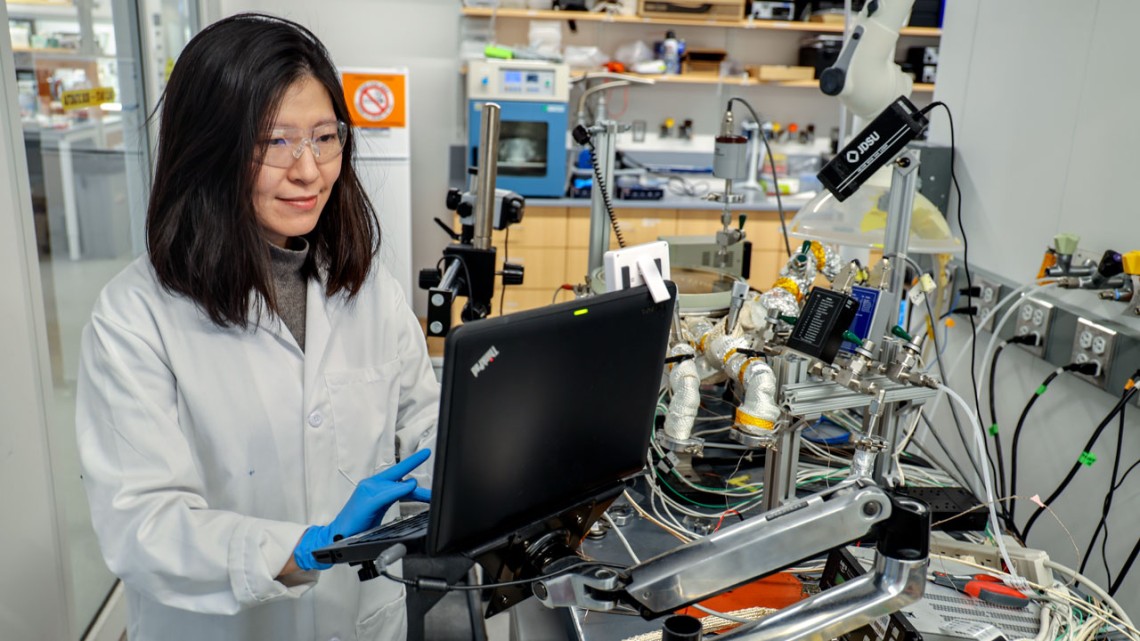

A novel combination of artificial intelligence and production techniques could change the future of nanomedicine, according to Cornell researchers using a new $3 million grant from the National Science Foundation to revolutionize how polymer nanoparticles are manufactured.
Polymer nanoparticles have emerged as a powerful tool for delivering medicine to precisely the right place, at the right time, inside the human body, but their use has been limited by the complexity of manufacturing.
“It can take decades for a company to design a molecular recipe and make it consistently reproducible at a large scale,” said Rong Yang, assistant professor in the Smith School of Chemical and Biomolecular Engineering and lead investigator on the grant. “There’s a bottleneck going from bench-scale synthesis to industry-scale manufacturing, and that’s what we’re trying to address.”
Yang and collaborators will be utilizing AI to analyze and guide the production of polymer nanoparticles in real time. As nanoparticles are being synthesized with an initiated chemical vapor deposition (iCVD) system, the researchers will incorporate liquid crystals that leave an “optical fingerprint” to be read by computer vision. The resulting data will be employed to train a convolutional neural network to identify information about the polymer nanoparticles, and then used for real-time, automated decision-making during the assembly process.
“We’ll be using liquid crystals as a solvent and also as a display, the same type you might find in your television screen,” Yang said. “We can use them to draw a connection between the material properties, like the molecular weight, size and morphology of the polymer nanoparticles, then link that to the optical output that we read from the AI.”
Bringing expertise in liquid crystals to the research is co-principal investigator Nicholas Abbott, the Tisch University Professor in the Smith School, while expertise in artificial intelligence will come from co-principle investigator Fengqi You, the Roxanne E. and Michael J. Zak Professor in Energy Systems Engineering.
If successful, the research would not only generate new cyber-driven approaches to manufacturing, but eventually revolutionize how polymer nanoparticles and nanomedicines can be made, according to Yang.
“Imagine everyone taking a slightly different version of a pill, manufactured right on the spot to have personalized medicine,” said Yang, who added that this type manufacturing could also change the production of other products containing polymers, such as construction materials. “Rapid characterization and feedback into the synthesis process could crack open all these possibilities that didn’t exist before.”

